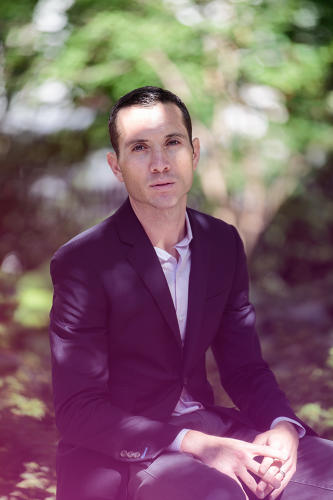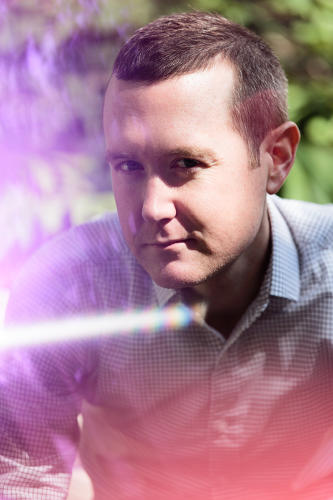The Rise Of Bradley Tusk, Silicon Valley’s Political Savior
In 2011, Uber was a tiny transportation startup that, according to its blog, was “#superpumped” to have “officially gone multi-city.” And, though he didn’t know it yet, Bradley Tusk was about to become one very lucky political consultant.
The manager of New York City Mayor Michael Bloomberg’s successful 2009 reelection bid, Tusk had just left the administration and started his own firm. As a favor to a friend, he agreed to meet with an unknown transportation startup that had just received a cease-and-desist from the New York Taxi and Limousine Commission (TLC). “The founder comes in, it’s Travis [Kalanick],” Tusk remembers. “I’d never heard of him or Uber.”
Tusk has an unbridled, matter-of-fact style of speaking, and when he recounts a story, even as its sole narrator, it often unfolds like a ping-pong match. “We have this conversation. He says, ‘Can I hire you?’ I say, ‘Sure, our minimum would be $25,000 per month.’ He comes back, ‘You know what? I can’t do $25,000 per month. Can we do some equity?’” Tusk said yes—which turned out to be the deal of a lifetime. His stake in Uber is now rumored to be worth around $100 million.
After helping the company win the TLC’s blessing in New York City, Tusk moved on to cities including Boston, Philadelphia, Chicago, Miami, Los Angeles, Denver, and Washington, D.C. It was his first brush with the startup world.
Meanwhile, a bevy of well-funded, future-thinking startups began to encounter regulatory hurdles. Last week, Airbnb lost a campaign in New York to fight a law that makes listing entire homes on the site illegal. The daily fantasy sports site Fanduel has hired lobbyists in more than 30 states with hopes of protecting its business from charges that it constitutes illegal gambling. A burst of startups that aimed to sell homemade food had been shut down by health departments. And startups that want to “revolutionize” everything from garbage disposal to parking meters are trying to sell their products to municipalities.
Tusk saw an opportunity to position himself as Silicon Valley’s political maneuvering expert.
Last year, he founded Tusk Ventures, a political consultancy aimed at getting local governments and technology startups to play nice—and, failing that, going to the mattresses instead. He’s been dubbed the “Uber lobbyist,” “Silicon Valley’s favorite political fixer” and “Tech Startups’ political mastermind.”
Tusk stakes out his positions via guest-written articles for publications like Techonomy, VentureBeat, TechCrunch, and Forbes; posts ideas about how to fix everything from the Olympics to income inequality on his Medium blog; has hosted a dinner with reporters; and uses speaking gigs at tech conferences such as TechCrunch Disrupt to amplify his messages.
He says his efforts to establish himself at the intersection of technology and government are in service of Tusk Ventures, which works differently than most firms because startups pay in equity rather than cash. “It’s about deal flow,” Tusk says. “If [an entrepreneur] is giving me 6% of her company, and I don’t give her a dollar in return, she has to walk in with a pretty high opinion of me. We need press to do all of that.”
Another possible reason for Tusk to raise his public profile, one that several of his peers in the political world offered, is that he’s setting himself up to run for office. A source with political expertise says if that were his plan, he would want to build a public persona around his values in advance of any personal campaign. That way he avoids being seen as a rich dilettante. As the New York-based political consultant put it, “If you were running for office, this makes total sense in that context.”
Tusk denies that he’s planning to run for office: “I don’t think I’m electable,” he tells me. But his unique brand of tech-savvy political chutzpah could certainly be used to sway an election.
“If you open your Uber on primary day, and there was a ‘vote no De Blasio’ button, and it would take you either to the polling place for free or from the polling place for free, would you do it?” he asks me, referring to the current New York City mayor, who he very publicly despises.
I probably would.
“My theory is that most people who are Uber users are not [New York City Mayor Bill] De Blasio supporters.” Tusk says. “I might pay for free rides to and from the polls to anyone who wants to vote on Election Day under the theory that I’m going to win 90% of those votes for the anti-De Blasio campaign.”
Government regulators have the power to make or break new companies, but technology startups can also, Tusk believes, influence politics. He has coined the term “Uber voter” to describe the new constituency made up of tech companies and their users.
Tusk grew up in a village in Long Island, about 20 miles from his current home in the Gramercy neighborhood of Manhattan. Before working for the Bloomberg campaign, he worked as the deputy governor of Illinois (under Rod Blagojevich, who Tusk later testified against when the governor was tried on corruption charges), and as a communications director for U.S. Senator Chuck Schumer.
Friends and enemies alike describe Tusk as a machine of intense efficiency and ambition. On most days, according to one of his own blog posts, he rises at 5 a.m. and then planks, prays, journals in a gratitude notebook, works out, meditates, reads four newspapers, takes vitamins, and makes a smoothie. Within the last five years, Tusk has launched two businesses in addition to his consulting firm: Kronos, which builds bespoke digital archives, and Ivory gaming, a traditional casino management company that has recently begun experimenting with virtual games inside brick-and-mortar casinos. During his downtime, he works on a script for a television pilot. He also runs an anti-hunger foundation with his wife. “You’re here once, right?” he figures. “So fuck it, do as much as you can.”
Tusk has built his reputation in the startup world around work he did for Uber in 2015, when it faced a proposal in New York City that would have capped the company’s growth while the city studied congestion. In crafting its public message, Uber followed advice that Tusk now gives to all startups: Figure out the larger public policy benefit provided by your company, and that will put regulators on the defensive. Through direct mail, television advertising, and relentless publicity, the campaign for Uber argued that the company was good for the city, providing jobs and transportation for less affluent residents in the outer boroughs. It wasn’t all about the message. It was also about who Uber wanted to hear it. The idea that Uber could reduce inequality intentionally coincided with the platform on which democratic Mayor De Blasio had campaigned, a move Tusk likes to call “attacking left-wing politicians from the left.”
While Tusk was instrumental to the Uberization of New York City, he’s sometimes been given more credit than he deserves. There were other talented advisers at Uber during that time, including David Plouffe, who managed President Obama’s 2008 campaign. Uber’s internal team included the former press secretary to New York Governor Andrew Cuomo, Matthew Wing—and the internal team contributed some of the most interesting ideas, like a feature in the Uber app that mobilized its users with a “De Blasio’s Uber” screen that showed long wait times and asked them to email the mayor and city council members. In 500 pages of emails between Uber employees or representatives and New York’s city hall, obtained through a Freedom of Information Law request, Tusk’s name does not appear once. Tusk’s firm says that its role was in coordinating the campaign and keeping all the pieces moving. As Josh Mohrer, Uber’s general manager, put it to me: “Bradley was the coach of a very good team.”
Uber eventually reached a compromise with City Hall that prompted headlines such as “Uber Mows Down De Blasio” and “How Uber Got NYC Mayor De Blasio to Back Down.”
Less than two weeks after the New York City Uber campaign ended, Tusk launched Tusk Ventures.
In more than two dozen interviews with people who have interacted with Tusk, I find he has a reputation for a scorched earth approach to government relations. “The people who want to work with him are people who are ready to go to war,” one prominent member of the tech community says. A political consultant echoes: “It’s sort of like hiring the best criminal defense attorney. It says something. It says you’re afraid and ready for a fight.”
Tusk’s consulting business doesn’t fit into a box that most young startups would recognize: It’s not exactly a lobbying firm, though it hires lobbyists. It’s not exactly a PR firm, though it has its own PR staff (which handles some of its client startups’ entire PR efforts). And it’s not an advertising firm, though it works with them. “Our competition doesn’t exist,” Tusk says. “We say to Walmart, you’re going to hire us. You’re going to pay us three times what you’re paying anybody else involved with this. And you still have to hire everyone else you need. But it’s going to work out for you, because you’re going to win.” (Political consulting firms such as Global Strategy Group and FP1 Strategies would argue that the competition does indeed exist.)
Tusk Ventures has 13 clients now, including the cleaning and handyman services company Handy, whose independent contractors sometimes sue on the allegation that they should be considered employees; Eaze, a medical marijuana delivery startup; and Fanduel, a company that facilitates game-by-game betting on fantasy sports.
Fanduel hired Tusk Ventures last October, and by then it was a fully fed unicorn ready for an Uber-sized fight. It had raised more than $360 million in funding at a $1 billion valuation and had already begun its lobbying efforts across the country. When news broke that employees at Fanduel and DraftKings—both fantasy sports companies that allow players to bet real money on players’ daily performance—were winning big by playing on their competitors’ platforms. The New York Times compared the setup to insider trading, and the next month, New York’s attorney general declared the games illegal. Illinois and Texas’ attorney generals followed his example soon after.

Tusk Ventures helped create a website that nudges DFS fans toward asking their government representatives “to protect the rights of all Americans who play fantasy sports.” In New York, Fanduel says its users sent 116,000 emails to legislators in support of a bill that protects its product, and in August, New York’s governor signed the bill into law. (Tusk’s PR firm blasted a statement from Fanduel CEO Nigel Eccles, noting that “Bradley Tusk, CEO of Tusk Ventures and regulatory man behind highly regulated startups including Uber, Handy, Eaze, and FanDuel, would love to chat and provide coloring if you’re interested.”) Seven states have passed similar bills this year. But there are now at least nine states with attorney generals who have determined fantasy sports to be illegal.
Though Tusk is known for high-profile startup battles, most of the companies that have given equity to Tusk Ventures are much smaller and trying to avoid conflict with government. They have agendas that look more like subleasing marketplace Flip, which hired the firm this July. Flip’s public benefit message is that it helps millennials and empty-nesters who want to go between cities and neighborhoods to find housing that fits with what’s going on their lives and is affordable.

Its less overt message is that it’s less threatening to cities than Airbnb. “What Airbnb has done and will do is say they help people stay in their homes,” I hear Tusk tell a city official at a meeting in his office. “Now, there are platforms that let people do that within the law. It’s the perfect answer for anyone who supports Airbnb.” Around the same time he began working with Flip, he began publicly criticizing Airbnb’s political efforts.
Is it worth it for startups without a regulatory war on their hands to hire Tusk? His firm’s equity fees are steep, the equivalent of between $50,000 and $125,000 per month—which for early-stage startups typically results in an equity stake on par with what the startup accelerator Y Combinator takes from its companies.
“You’re promised the world,” is a sentiment I hear over and over again while reporting this story. Sometimes it’s from startups who feel duped by high expectations. “The pitch was, ‘Here’s what we’ve been able to do for these guys [Uber] and we can definitely do it for you,” says one person associated with a company that worked with Tusk Ventures. “But that didn’t seem to be the case.” In at least three cases since Tusk Ventures started last year, relationships it has had with startups have ended. Many startup investors have told me they think that a startup’s resources should go into building products and pleasing customers, and that working on government relations at an early stage can be a distraction.
But plenty of Tusk’s clients say the tradeoff was worth it. Jim Gibbs, the CEO of Meter Feeder, a Pittsburgh-area startup that makes an app-based parking payment system says Tusk helped create a sales strategy. “They helped us look at the big picture,” Gibbs says. “We’re targeting these cities because this makes sense. Versus us starting in Albuquerque and working our way down to whatever town starts with Z.” He calls Tusk’s services “worth every penny of equity.”
Tusk helped AltSchool, a network of private schools that uses technology-enhanced customized lesson plans for each student, to understand communities and legislative environments in which it’s considering opening or has opened new locations. “It’s that we don’t have the in-house capacity to be sophisticated strategizers and communicators and knowers of the right people in every community we would consider, but Tusk somehow manages to be,” says Eve Wachtell, the company’s general council.
As more early-stage startups come to see government relations as important, Tusk faces competition from venture capital firms that are increasingly providing a wide range of support services to insure that their investments pay off. In 2012, Andreessen Horowitz hired Adrian Fenty, the former mayor of Washington, D.C., to be a “special adviser” to its startups. More recently, it hired former Facebook General Counsel Ted Ullyot to help companies navigate gray legal territory. Steve Case, the CEO and chairman at the venture capital firm Revolution, has made a point of hiring executives with experience in politics and public policy. “We are happy to be helpful on these policy issues,” he says. “We do not ask for or expect equity in addition to what we paid for.”
One obvious way for Tusk to take on this threat: Become a VC himself. “I wouldn’t be surprised if Tusk didn’t decide to raise a fund so they can have a bigger stake in the company,” Case says. Two sources, who asked not to be named, say that Tusk is indeed raising this fund to invest cash in Tusk Ventures companies.
In addition to his campaign at the intersection of tech and government, Tusk runs a more traditional political operation called “NYC Deserves Better.” It’s an ongoing campaign arguing that current New York City Mayor Bill de Blasio should not be reelected in 2017. The first video posted by the NYC Deserves Better YouTube account details De Blasio’s “failures of the week.” Its first podcast is entitled “public corruption.” And in interviews about the effort, Tusk has called the mayor “lazy” and “inept.” Almost every New York City publication has covered Tusk’s anti-De Blasio work, though it is not clear what, if any, impact it has had. (A de Blasio spokesperson called Tusk a “gadfly.”) Meanwhile, bashing the current mayor has further ostracized Tusk from the city hall with which many of his clients would like to negotiate.
He lost clients when he started NYC Deserves Better. As one startup founder who has considered paying Tusk Ventures in equity put it: “How does this help any of the startups he’s supposed to work for?”
Tusk insists the anti-mayoral campaign is driven by his principles. “Everyone bitches and moans about [the mayor], but nobody does anything,” he says. “My view is that if I can do all of this, and I truly believe he’s a horrible mayor, then it’s morally incumbent on me to do it. So I did it. Aren’t I like a lot of the people you cover in that, even though I’m not a tech founder, it’s the same view of, ‘I can and therefore I will?'”
This is not so different from the messaging Tusk helped come up with for Bloomberg’s potential presidential run, which in one rough-cut campaign ad promised Bloomberg “will be totally independent to take on the special interests and push both parties to get things done.”
The challenge with Tusk’s quasi-libertarian stance is pinning down exactly what he does stand for on any given issue. “My wife hates that I have all these gambling businesses. I see no problem with it,” says Tusk, launching into another ping-pong narrative. “At the same time, PAX, which is a great company—they make a high-end vaporizer—I was like, I can’t do it. I won’t be in a tobacco company. I won’t do guns. There are things that I don’t believe in. We turned down Chick-fil-A recently. They were like, ‘We want to be in New York, how do we do it?’ I was like, ‘Change all of your positions on gays.’ They’re like, ‘No.’ Then I was like, ‘Well, we’re not for you.'”
At a conference his firm put together last summer, Tusk said that one thing stopping government officials from working better with startups were “too much willingness to do the bidding of entrenched interests and campaign donors.”
But the companies whose interests Tusk promotes also pay him, whether in cash or equity. Technology innovation is just as much a special interest as anything else. Fanduel, looked at from one angle, is a hobby. From another, it’s an illegal gambling company that preys on addiction. Handy’s public good message is that it wants to give its workers benefits without locking them into full-time jobs they don’t want because they prefer the flexibility of the gig economy. Others argue the new type of worker classification that the company wants to create, which would offer fewer protections than an employee classification, could set a dangerous precedent that makes it easier for companies to avoid following labor laws.
Tusk describes these clashes as a consequence of innovation bumping into archaic legislation. But his client Flip positions itself as a city-friendly alternative Airbnb, which also claims to be battling archaic legislation. So which side is he on?
Business has always influenced politics. And we’re still in the early stages of technology companies upending the assumptions and traditions that have guided politicians in the past. Which means that the messages and influence of startups who hire Tusk and others like him will continue being amplified, and it will sometimes be difficult to pick the morally righteous side.
But it will be easy to tell who is winning.
After tagging along with Tusk during a day of back-to-back meetings, I interview him at a fancy cocktail bar, the kind where a waitress appears when you push a doorbell on the wall. He hasn’t checked his phone in almost an hour, and, he tells me shortly before excusing himself for a moment, “it’s fucking killing me.” When he comes back, he’s in a celebratory mood. One of his clients, a company called Lemonade that has been called (“the Uber of insurance”), has just been approved for a license to operate in New York. “We won,” he says.
Bradley Tusk has been called the “Uber lobbyist,” and “Silicon Valley’s favorite political fixer,” and “Tech Startups’ Political Mastermind.”
![]()
Michaela Balderston, Tusk Ventures VP of Communications

Jordan Nof, Tusk Ventures Head of Investments

Anatola He, Senior Investment Associate at Tusk Ventures

Patrick Muncie, Tusk Ventures Deputy Communications Director

Fast Company , Read Full Story
(127)

